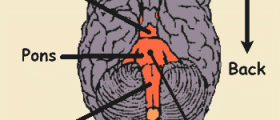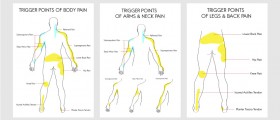
Introduction to neck nerve pain
Neck nerve pain is a common condition and often, it is not very serious. However, if it goes on for a long period of time and is untreated, it can lead to serious health problems.
This is the pain that a person feels on the neck that is usually caused by some kind of injury or a muscular problem in the neck. Sometimes it results from a trapped nerve that can be caused by a bulging disc in the spine.
It can also be caused by a case of arthritis in the neck.
The neck nerve pain can often be minor, but it can also become severe and very uncomfortable.
If the pain is acute and sudden, it is sometimes referred to as a crick in the neck, which is medically known as muscular rheumatism.
When the neck nerve pain lasts for over three hours then it can be deemed chronic neck pain, which women experience more often than men do.
Symptoms
Neck nerve pain symptoms include mild to severe pain in the neck and a stiffness of the neck muscles, pain shifting from the neck to the shoulder and between the shoulder blades, sometimes causing shoulder pain as well, soreness and tenseness of the muscles in the neck, abnormal posture, painful head movements, arm pain, headaches on both sides of the head, weakness in the shoulder and arms, and tingling sensations in the fingers.
There are three kinds of spinal nerves that connect the spine to the rest of the body – sensory, motor and autonomic nerves.
The sensory ones send feeling like temperature, pain and texture, the motor nerves relate to movement, while the autonomic nerves control involuntary actions such as the heartbeat and digestion.
The location and intensity of the pain in the neck can sometimes provide information that will lead a person to uncover what type of nerve has been damaged.
When the autonomic nerves are damaged, a person will experience symptoms of chest pain, lightheadedness, extreme sweating, sexual dysfunction, constipation, bladder dysfunction, and dry eyes and mouth.
In the case that a motor nerve has been injured, the person will experience general weakness, twitching, muscle atrophy twitching and paralysis in some cases.
When a sensory nerve is damaged, the person will experience sensitivity, burning, sharp tingling, pain, positional awareness problems and general numbness.Causes
Some of the most common causes of neck nerve pain are poor posture, muscle strain, trauma, bone and joint abnormalities, tumors, degenerative diseases, osteoarthritis and spondylitis.




-Causes,-Symptoms,-Diagnosis,-Treatment_f_280x120.jpg)












Your thoughts on this
Loading...